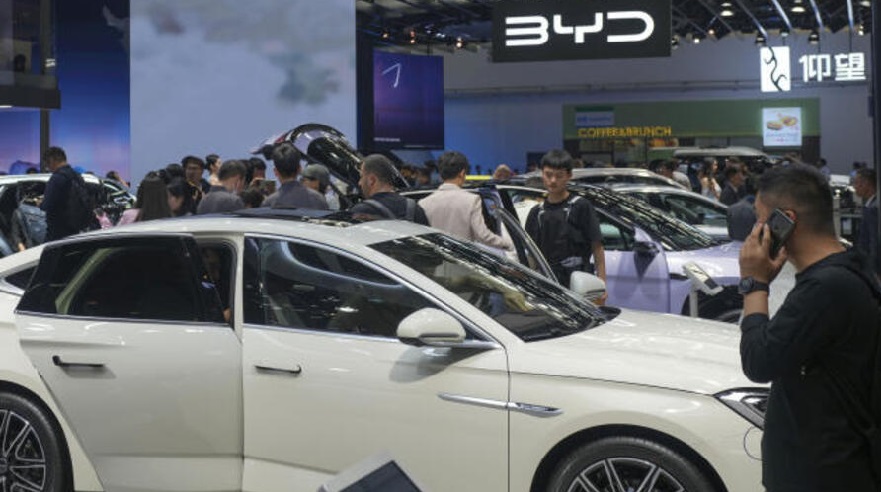A global industrial policy to accelerate electrification and relocate manufacturing to compete with the expansion of Chinese automakers has not yet been achieved.
The numbers speak for themselves: in the past year, China surpassed Japan as the largest exporter of vehicles, with around 5.2 million units sent abroad, a significant percentage of which are zero-emission vehicles.
In this scenario, the North American power and the Old Continent have gone on the offensive.
On one hand, the United States has already raised its tariffs on Chinese vehicles to 100 per cent, and Europe is set to increase them up to 38 per cent, depending on the brand.
So, what role does Latin America play in this dispute?
The fact is, if the Asian giant is shut out of these markets, countries like Brazil and Mexico are key allies due to their potential, as they are currently in development.
However, the battlefield is always a hostile terrain. With the launch of the Green Mobility (Mover) programme by the Brazilian state, a series of progressive taxes were introduced to protect the country’s industry.
As part of the promotion of Mover, national industries committed to investing 20 million dollars in the transition process with hybrid, plug-in hybrid, and electric vehicles.
In this context, sales in the Latin American country have already increased by 1,000 per cent, for several reasons, including the implementation of taxes on electric vehicles imported from China.
As one of the most in-demand markets in the region is electric buses, Brazil’s President, Lula da Silva, stated that despite the good relationship with the Asian power, he prefers them to be manufactured in Latin America.
But how can this be effectively achieved? Here, Miguel Angel Bravo, president of Bravo Motor Company and protector of the EVSHARE foundation, offers a solution.
“Gigafactories for batteries are needed so that cells and packs are manufactured locally as they represent 60 per cent of an electric bus,” says the eMobility expert.
However, the case of Brazil may not be replicated across Latin America.
In this regard, Bravo explains: “This always depends on the country; those with an automotive industry defend it. This is the case with Argentina, which has high tariffs on imported vehicles, and now Brazil.”
However, in Argentina, “there is no plan or project.” In the last 10 years, the Argentine Association of Electric and Alternative Vehicles (AAVEA) has presented four bills. None were discussed.
“The most feasible option is for Argentina to have electric vehicles imported from Brazil,” says the specialist.
Why? Tariffs on Chinese electric vehicles remain high.
Therefore, according to the Mercosur regime and with BYD’s establishment in Brazilian territory, it is the most viable alternative.
Or will Argentinians wait for some gesture from President Javier Milei?
For its part, Mexico is playing the nearshoring game. That is, a brand like Tesla manufactures its vehicles on Mexican soil and then enters not only the United States and Canada without tariffs but also Europe.
That is why Elon Musk’s company will invest five billion dollars in an electric vehicle plant in Nuevo León. The production will reach one million units a year.
With intentions of accessing the US market through the back door, BYD, Chery Group, and Great Wall Motors are in Mexico defining locations for their factories.
Other countries such as Colombia, Uruguay, Peru, and Chile are focusing on national industrial policies, but the reality is that they do not have an automotive industry like Brazil, Mexico, or Argentina.
China va por el contrataque a los aranceles
The Chinese have responded to the imposition of tariffs on the import of 100 per cent electric vehicles, stating that the measures taken by the European Union “are a typical case of protectionism.”
The Chinese government also asserted that “necessary measures will be taken to firmly safeguard the legitimate rights and interests of China.”
During a press conference, the Foreign Ministry spokesperson, Lin Jian, urged the community bloc to “honour its commitment” to support free trade and oppose “protectionism.”
To learn more about electromobility in the region, visit Mobility Portal Latinoamérica.




